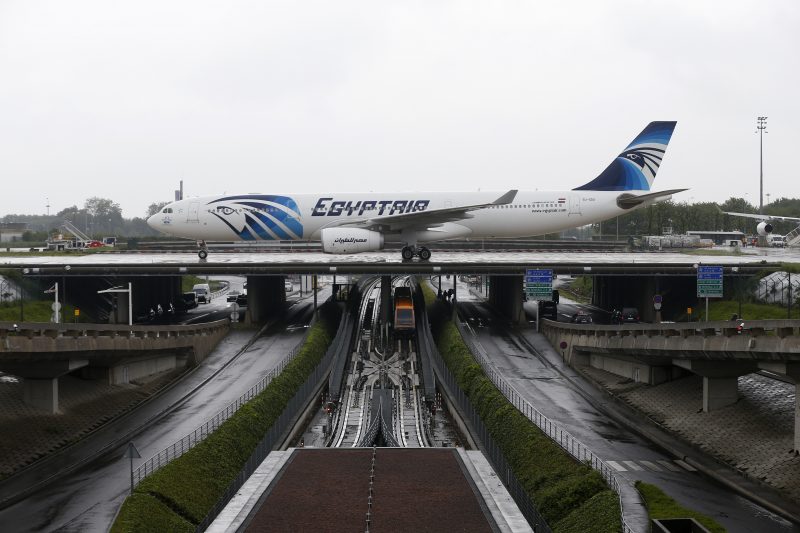Doomed EgyptAir Airbus ‘should not have taken off’, French report says
French experts point to ‘considerable lack of rigour on the part of crew and the technical services of EgyptAir’ (THOMAS SAMSON)
Paris (AFP) – An Airbus jet operated by EgyptAir that crashed over the Mediterranean almost three years ago, killing all 66 people on board, should have been grounded because of a series of technical issues on previous flights, according to a French investigation.
The report, ordered by the French judiciary, stops short of drawing firm conclusions about the precise cause of the disaster but makes clear a serious of previous issues with the plane should not have been ignored.
Flight MS804, which was bound from Paris’s Charles de Gaulle airport to Cairo, plunged into the sea between Crete and the northern coast of Egypt after disappearing from radars.
All passengers and crew on board, including 40 Egyptians and 15 French citizens, lost their lives in the crash of the A320.
The Egyptian authorities rapidly suggested that the crash was due to an attack, but French officials have always preferred the theory that it was caused by a technical problem.
Three Paris judges investigating the case ordered two probes to reconstruct the sequence of events that led to the crash, with results from the first handed over to magistrates in June.
In the document of 76 pages, first reported by the Le Parisien newspaper and seen by AFP, the two experts complain of “the considerable lack of rigour on the part of crew and the technical services of EgyptAir” in processing the aircraft’s technical documents.
– ‘Recurring faults’ –
The report, by a technical expert and an aeronautic expert, says there were several incidents concerning the operation of the aircraft which were not reported by the pilots and thus not followed up by maintenance teams.
These faults “were not signalled when the aircraft was at its principal base in Cairo, apparently so that it would not be grounded for repairs”.
“The examination has shown that this aircraft should have been subject to checks during its four previous flights and should not have taken off from Cairo after a sequence of recurring faults which were not signalled by successive crews.”
But they stop short of drawing a conclusion on what caused the crash, saying the “study of the elements” at their disposal “does not allow to determine if the accident resulted from the different technical issues”.
Yet they point to suspicions that one of the faults “could have been the precursor of a major electrical failure”.
– ‘Warnings ignored’ –
Antoine Lachenaud, a lawyer for the family of Clement Daeschner-Cormary, a 26-year-old passenger who died, said the report showed that the crash was due to error and not chance.
“When warnings are ignored in a systematic manner this results in a crash and it becomes impossible to maintain that this is due to chance,” he said.
“Based on this report and the investigations, there should be consequences over the responsibilities of those involved.”
The report says the on-the-ground technician in Paris had no reason to stop the flight from taking off, since no alert of the plane’s previous problems had been given.
But it does highlight eventual shortcomings in the competence and accreditation of the technician responsible for checking the plane for the return flight while it was on the ground in Paris.
– Cockpit fire? –
It also notes that the casing of the oxygen mask for the co-pilot was replaced for unknown reasons three days before the crash.
“The replacement of this equipment requires careful checking, given the danger of oxygen leaks,” the experts wrote.
A report published last year by France’s Bureau of Enquiry and Analysis for Civil Aviation Safety (BEA) said its main hypothesis was that a fire erupted in the cockpit which rapidly got out of control.
A second report requested by the French judges is expected to determine if smartphones and tablets left in the cockpit could have led to the fire.
A source close to the case, who asked not to be identified, said French investigators had started to analyse a copy of one of the “black box” voice recordings from the cockpit.
They received the recordings after the Egyptian security authorities ended their investigation.
In December 2016, Cairo officials said traces of explosives had been found on the remains of some victims, but French authorities were sceptical, as no organisation had claimed responsibility for any attack.
Disclaimer: Validity of the above story is for 7 Days from original date of publishing. Source: AFP.


